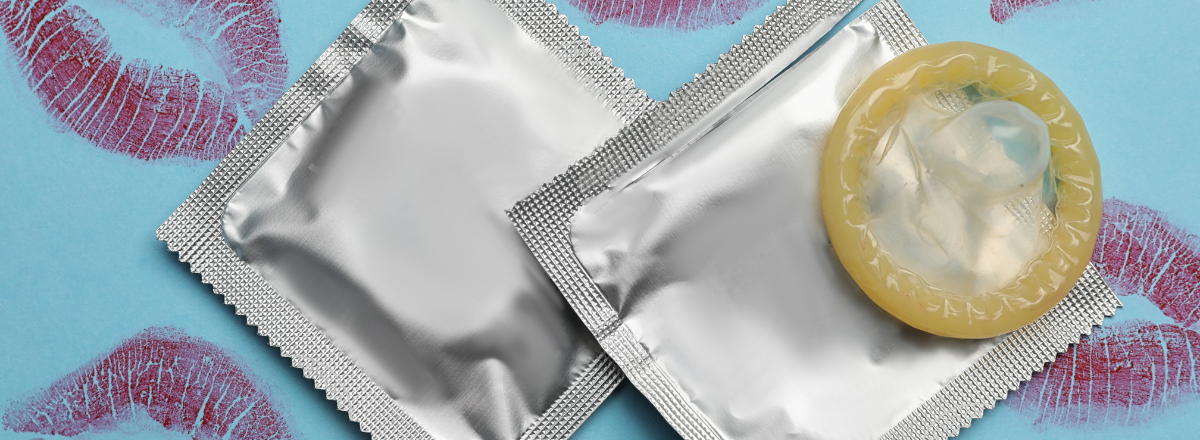Sexually transmitted infections have made the headlines this month – and with good reason. Cases of STIs in general dropped considerably during the pandemic and although they haven’t yet reached pre-pandemic levels yet, diagnoses of two specific and unpleasant infections reached record highs last year (2022).
New data from the UK Health Security Agency (UKHSA) reveals that gonorrhoea cases doubled year on year and syphilis diagnoses reached a 75-year high. It’s concerning news, says ZoomDoc GP, Dr Sohini Kar.
‘STIs aren’t just an infection. They can have unpleasant symptoms, take a while to clear up – and can even impact your health and fertility long-term. And of course they can easily infect someone else, impacting their life, too,’ she says.
So, with a rise in gonorrhoea and syphilis in particular, here’s what to know about these two STIs, including how to get tested without even leaving the house.
How serious are these STIs?

If you’re worried because you think you’ve got an STI, go for a check-up at a sexual health clinic as soon as you can.
Although STIs can usually be easily treated with antibiotics, many can cause serious health issues if left untreated. Caused by a bacteria that’s spread through unprotected sex, gonorrhoea can cause infertility and pelvic inflammatory disease and, without treatment, can cause permanent blindness in a newborn baby.
Syphilis is also a sexually transmitted infection that can cause serious, irreversible and potentially life-threatening problems with your brain, heart, nerves and other organs. These can appear months or even years after being infected.
What are the symptoms to look out for?

Symptoms can develop within a few days or weeks, but sometimes they do not appear until months or even years later.
According to the NHS, ‘typical symptoms of gonorrhoea include a thick green or yellow discharge from the vagina or penis, pain when peeing and, in women, bleeding between periods.’
However, many people won’t notice any symptoms at all – that’s why getting tested if you have had or have unprotected sex with new or casual partners is key.
‘If you don’t have symptoms you’re likely to spread it to other people whose health could be badly affected,’ says Dr Sohini.
The NHS says syphilis symptoms are more varied and can include:
- small painless sores (ulcers) on your penis, vagina, or around your bottom
- sores in other areas, including in your mouth or on your lips, hands or bottom
- white or grey warty growths most commonly on your penis, vagina or around your anus
- a non-itchy rash on the palms of your hands and soles of your feet that can sometimes spread all over your body
- white patches in your mouth
- flu-like symptoms, such as a high temperature, headaches and tiredness
- swollen glands
- patchy hair loss on the head, beard and eyebrows
‘With syphilis, even if symptoms improve or disappear, you’ll still need to take antibiotics to get rid of the infection and stop it spreading to other people, so always see your doctor if you suspect it could be this STI, or any other,’ says Dr Sohini.
How to prevent STIs
Although they can be serious, STIs are easily preventable by using condoms. They really are your ‘best form of defence’, says Dr Hamish Mohammed, Consultant Epidemiologist at UKHSA.
Not sharing sex toys and getting (and completing) antibiotic treatment for an STI is also important to get rid of it completely.
Getting tested and getting treated

Getting tested and treated for sexually transmitted infections (STIs) is straightforward and confidential. Most infections can be cured.
UKHSA advice is to get tested if you didn’t use a condom ‘the last time you had sex with a new or casual partner to detect any potential infections early and prevent passing them on to others. Testing is important because you may not have any symptoms of an STI.’
Tests are available from your GP or local sexual health clinic.
But, another easy way to get tested is via ZoomDoc’s sexual health tests. These can be ordered online and done in the comfort and privacy of your own home.
There are three to choose from:
- Chlamydia and gonorrhoea (£39) – this uses a simple urine test to check for these two sexually-transmitted infections.
- Routine STD test (£130) – this uses a finger prick blood test and urine test to check for 7 common sexually-transmitted infections, including both gonorrhoea and syphilis.
- Complete STD test (£195) – also uses a finger prick blood test to detect 11 separate sexually-transmitted infections, including gonorrhoea, syphilis and herpes, amongst others.
ZoomDoc sexual health tests have clear instructions and use accurate finger prick blood tests and accredited lab analysis. Order yours today for next-day delivery.
If your test is positive for an STI, such as gonorrhoea or syphilis, you’ll need antibiotics to treat it.
‘Gonorrhoea is usually treated with a single antibiotic injection but you’ll need a course of antibiotics for syphilis, depending on what stage your infection is at,’ says Dr Sohini.
Either way you’ll need to be re-tested for the STI several weeks after starting treatment, just to check it is fully out of your system.
To talk to a GP about any sexual health concerns you have, download the ZoomDoc app to make a doctor’s appointment at a time that suits you.

